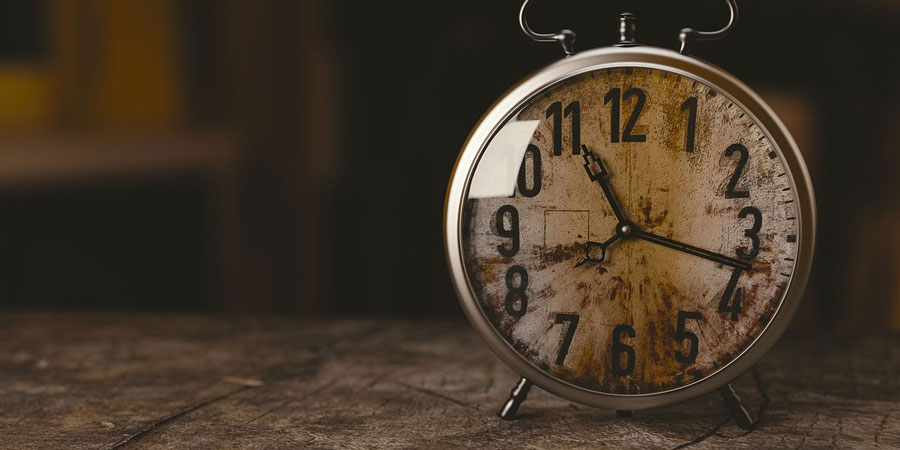How can you help someone with dementia tell the time?

We all check the time…all the time! Even if we don’t realise it. Knowing the time keeps us orientated through the day.
We check the clock to see if it’s time to get up in the morning, to check we’re not running late for an appointment. A quick look at the time tells us that it’s time to start cooking dinner for the family or that it’s time to turn the TV off and go to sleep.
For people with dementia, this skill becomes more difficult and is progressively lost. Not being able to tell the time can make dementia sufferers feel confused and anxious. Unfortunately, losing the ability to tell the time is often one of the early symptoms of a dementia patient’s journey.
Why does dementia affect the ability to tell the time?
Dementia affects the part of the brain that allows us to tell the time. As cognitive function in that area of the brain declines, dementia sufferers slowly lose their ability to read the numbers, the position of the numbers or understand the placement of the hands on the clock. Therefore, they can no longer tell the time.
What problems does it cause?
Along with the inability to tell the time, people with dementia also experience memory loss and often forget what day, month, or year it is. They often have no sense of time and can’t tell if an event happened an hour ago or a week ago. This causes great confusion, fear, and vulnerability, which is often expressed with clingy or repetitive behaviour.
For a previously independent person, the inability to keep track of time can be devastating. Missing meals and being late for appointments is upsetting and confusing for someone who has been used to a routine orientated life.
Tips to help people with dementia tell the time
In the early stages of dementia ensure that the clocks around the house are clear. Plain clocks with numbers clearly marked will help them tell the time. As dementia progresses, digital clocks with the time clearly visible, may become more useful. Once interpreting the numbers becomes too difficult, a digital clock that simply states the day and either morning, afternoon, evening or night, may be more beneficial.
The Alzheimer’s Society online shop sells digital and manual clocks that are particularly beneficial for people with dementia.
Eximius can help
At Eximius, we provide exceptional live-in support for people diagnosed with Dementia. All our companions are fully trained and qualified with Dementia care and are aware of the importance of supporting them to maintain skills, abilities, and an active social life.